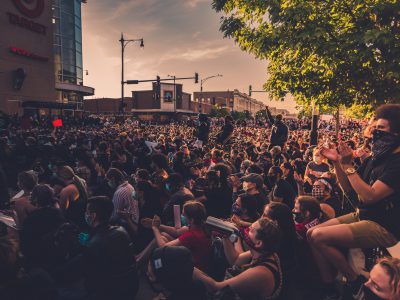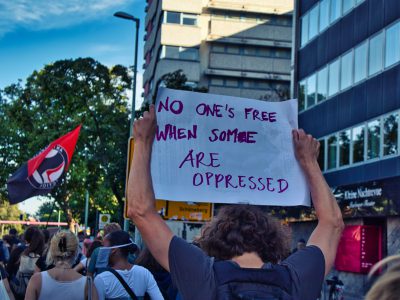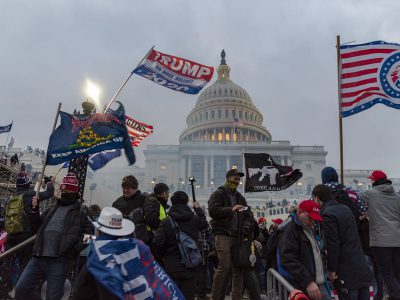WP_Post Object
(
[ID] => 2675
[post_author] => 2
[post_date] => 2021-05-27 18:10:41
[post_date_gmt] => 2021-05-27 18:10:41
[post_content] => A hardwired belief that it couldn't happen here has made it impossible to acknowledge the reality.
On May 19 Senate Minority Leader Mitch McConnell came out against the January 6th Commission, a proposed bipartisan investigation into Republican crimes. Kevin McCarthy, the GOP House leader, did the same on May 18. Thus the Democrats were once again stymied in their efforts to obtain answers under oath about the violent attempt to overturn the 2020 election results and reinstall Donald J. Trump as president.
These provocations come on the heels of Liz Cheney's removal from her House GOP leadership position for having affirmed Biden's victory and for having criticized the "Big Lie"—i.e., that Trump won the election and the Democrats “stole” it— that led to the January 6th insurrection. It is a lie that the GOP continues to promote, as do the media outlets aligned with the party. Trump loyalist Elise Stefanik replaced Cheney. On Fox News Sunday, Cheney said that both McCarthy and Stefanik were complicit in Trump's lies.
Fred Upton, a Michigan Republican congressman who also voted to impeach Trump, said on CNN’s “State of the Union” that he was “very disappointed” with his party’s leadership for ousting Cheney, saying: "We're not going to win unless we add to our base, not subtract from our base."
In a functioning democracy, what Cheney and Upton said might make sense. But if their party’s strategy is to pack the courts, overturn elections, incite mobs, gerrymander, suppress votes, and otherwise harass the vulnerable, then the size of its base is not as relevant a concern.
Authoritarians don’t want a big tent. They want—demand—a loyal, obedient cult of personality. Exclusion is their power move. The GOP is an authoritarian party that has been open about its intent to establish minority rule by any means necessary. The Big Lie is going strong, part of a long tradition of racist Lost Causes.
As of April 1, Republicans introduced 361 voter suppression bills in 47 states. As Jamelle Bouie wrote in The New York Times: If It's Not Jim Crow, What is It? In Florida and Oklahoma, Republicans legalized hitting protestors with cars. Across the country, Republicans are engaging in an all-out legal assault on trans kids and their families. This past week, the Republican-installed Supreme Court agreed to take up a Mississippi abortion case that is poised to overturn Roe v. Wade.
Republicans have been on the path toward authoritarianism for more than two decades. Bush v. Gore, Citizens United and Shelby v Holder were way stations on the road to the insurrection. Trump just speeded up the journey and helped them blossom into their worst selves.
American exceptionalism has distorted our perception of the GOP's turn to authoritarianism. The shocked surprise at each new escalation, the democracy experts Columbusing authoritarian studies—there are so many experts in so many countries to whom one could turn for years of accumulated wisdom if only the association were not considered so deeply offensive. A hardwired belief that “it couldn’t happen here” has made it impossible to acknowledge the reality: it has already "happened here."
People continue to argue that America can't be fascist, as if semantics will save us from what's to come. People said it couldn't be a slow-motion coup, and even if it was, that it would never succeed. How cavalier! In November, 2020 I tweeted, "Not every attempted coup becomes a successful coup, but every successful coup was once an attempted coup. Why the fuck would you ever want to take the chance?"
People desperate for any semblance of the rule of law see principles in Liz Cheney's behavior. Others see her hard right voting record, her continued support for voter suppression laws and last name and wonder what she stands to gain. Her vote to impeach Trump was significant, and good for fundraising. In betting against the party, she must expect to survive long enough to see Trumpism implode. With the help of her backers, she is positioning herself and a few colleagues to pick up the GOP pieces.
People have been betting since the 2016 primaries that Trump would collapse. What began as "he'll never be the nominee" morphed into "he'll never win" which led to "he'll resign." By the end we'd hit a low: "he'll leave the White House." The latest version of this magical thinking: "He won't run again."
Says who? How do they know? Have they met an abusive narcissist, let alone one with a personality cult who's had a taste of nuclear codes? What happens if Trumpism doesn't implode and the GOP further radicalizes? What happens if they regain national power? How much damage are they doing on the state and local level? Can you imagine a Republican Congress certifying a Democratic winner in 2024?
On the bright side, Trump and the Trump Organization are embroiled in civil and criminal legal action. The Biden administration has shown more openness to unilateral action and structural change than many expected. Biden's stimulus bill was passed without bipartisan support through reconciliation. He's created a bipartisan commission to advise on expanding the Supreme Court. Previously against filibuster reform, Biden has since become open about its abuse and the need for change.
But the administration has yet to overcome some exasperating hurdles. Senators Manchin and Sinema still oppose ending the filibuster, which effectively gives Republicans the power to block the January 6 Commission, legislation securing the right to vote, PR or DC statehood, or an expanded Supreme Court. The myth of bipartisanship stands in the way of legislative mobilization to save our democracy.
Americans find it difficult to think of their country as anything other than a democracy. The reactionary backlash to the groundbreaking New York Times Magazine 1619 Project, which questioned how democratic a white supremacist America could truly be, most recently cost journalist Nikole Hannah-Jones tenure at UNC— despite impeccable credentials that include having been awarded a MacArthur “genius” fellowship in 2017 and a Pulitzer Prize in 2020.
These trends did not arise overnight. America has a long history of legalizing atrocities, corruption and discrimination. Those efforts have been supported by white supremacist, nationalist myths like American exceptionalism and its imperialist predecessor, Manifest Destiny.
If we're going to save our democracy, we must accept that Trump and the GOP are one, and that they pose a longstanding, violent threat to our democracy and human rights. American exceptionalism isn't real. We aren't special. Rule of law won't save the day. Propaganda works, and can't be easily undone.
To start, it would help if people stopped expecting authoritarianism in the US to look like some other country’s version of it. We have our own white, capitalist, Evangelical version, built upon what Isabel Wilkerson persuasively calls the American caste system, rooted in indigenous genocide and chattel slavery. The rest of the world knows it too. The Nazis studied American race laws, both state and federal, in order to write the Nuremberg Laws. In the case of the one-drop rule, even they found America too harsh.
Too often, news analysis gives the impression that Trump is done and the authoritarian threat is past. But GOP displays of loyalty and escalations on Fox News suggest otherwise. The base is holding Trump 2024 signs.
We don't know how this will play out, or when Trumpism will implode, whether in two months or 10 years. But abusers don't quit, and it's a mistake to let our relief at the reprieve fool us into thinking we're free of him.
[post_title] => The fascism is already here, but we can't see it through the lens of exceptionalism
[post_excerpt] => American exceptionalism has distorted our perception of the GOP's turn to authoritarianism.
[post_status] => publish
[comment_status] => closed
[ping_status] => open
[post_password] =>
[post_name] => the-fascism-is-already-here-we-just-cant-see-it-through-the-lens-of-exceptionalism
[to_ping] =>
[pinged] =>
[post_modified] => 2024-08-28 21:11:29
[post_modified_gmt] => 2024-08-28 21:11:29
[post_content_filtered] =>
[post_parent] => 0
[guid] => https://conversationalist.org/?p=2675
[menu_order] => 201
[post_type] => post
[post_mime_type] =>
[comment_count] => 0
[filter] => raw
)

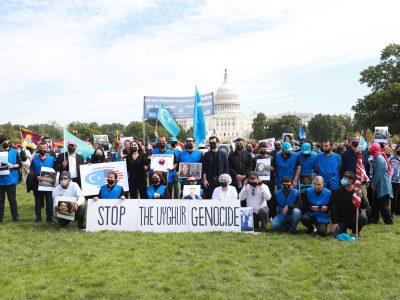

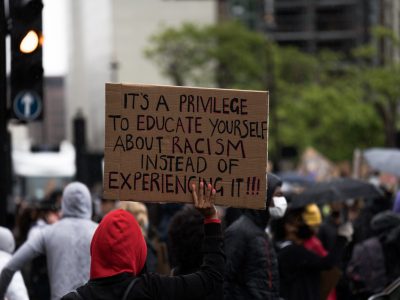


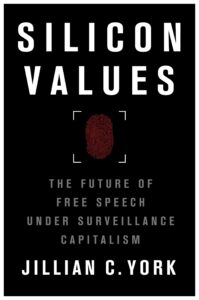 During the decade prior to the 2011 uprising, Egypt saw a blogging boom, with people from diverse socio-economic backgrounds writing outspoken commentary about social and political issues, even though they ran the risk of arrest and imprisonment for criticizing the state. The internet provided space for discussions that had previously been restricted to private gatherings; it also enabled cross-national dialogue throughout the region, between bloggers who shared a common language. Public protests weren’t unheard of—in fact, as those I interviewed for the book argued, they had been building up slowly over time—but they were sporadic and lacked mass support.
While some bloggers and social media users chose to publish under their own names, others were justifiably concerned for their safety. And so, the creators of “We Are All Khaled Saeed” chose to manage the Facebook page using pseudonyms.
Facebook, however, has always had a policy that forbids the use of “fake names,” predicated on the misguided belief that people behave with more civility when using their “real” identity. Mark Zuckerberg famously claimed that having more than one identity represents a lack of integrity, thus demonstrating a profound lack of imagination and considerable ignorance. Not only had Zuckerberg never considered why a person of integrity who lived in an oppressive authoritarian state might fear revealing their identity, but he had clearly never explored the rich history of anonymous and pseudonymous publishing.
In November 2010, just before Egypt’s parliamentary elections and a planned anti-regime demonstration, Facebook, acting on a tip that its owners were using fake names, removed the “We are all Khaled Saeed” page.
At this point I had been writing and communicating for some time with Facebook staff about the problematic nature of the policy banning anonymous users. It was Thanksgiving weekend in the U.S., where I lived at the time, but a group of activists scrambled to contact Facebook to see if there was anything they could do. To their credit, the company offered a creative solution: If the Egyptian activists could find an administrator who was willing to use their real name, the page would be restored.
They did so, and the page went on to call for what became the January 25 revolution.
A few months later, I joined the Electronic Frontier Foundation and began to work full-time in advocacy, which gave my criticisms more weight and enabled me to communicate more directly with policymakers at various tech companies.
Three years later, while driving across the United States with my mother and writing a piece about social media and the Egyptian revolution, I turned on the hotel television one night and saw on the news that police in Ferguson, Missouri had shot an 18-year-old Black man, Michael Brown, sparking protests that drew a disproportionate militarized response.
The parallels between Egypt and the United States struck me even then, but only in 2016 did I become fully aware. That summer, a police officer in Minnesota pulled over 32-year-old Philando Castile—a Black man—at a traffic stop and, as he reached for his license and registration, fatally shot him five times at close range.
Castile’s partner, Diamond Reynolds, was in the passenger’s seat and had the presence of mind to whip out her phone in the immediate aftermath, streaming her exchange with the police officer on Facebook Live.
Almost immediately, Facebook removed the video. The company later restored it, citing a “technical glitch,” but the incident demonstrated the power that technology companies—accountable to no one but their shareholders and driven by profit motives—have over our expression.
The internet brought about a fundamental shift in the way we communicate and relate to one another, but its commercialization has laid bare the limits of existing systems of governance. In the years following these incidents, content moderation and the systems surrounding it became almost a singular obsession. I worked to document the experiences of social media users, collaborated with numerous individuals, and learned about the structural limitations to changing the system.
Over the years, my views on the relationship between free speech and tech have evolved. Once I believed that companies should play no role in governing our speech, but later I shifted to pragmatism, seeking ways to mitigate the harm of their decisions and enforce limits on their power.
But while the parameters of the problem and its potential solutions grew clearer, so did my thesis: Content moderation— specifically, the uneven enforcement of already-inconsistent policies—disproportionately impacts marginalized communities and exacerbates existing structural power balances. Offline repression is, as it turns out, replicated online.
The 2016 election of Donald Trump to the U.S. presidency brought the issue of content moderation to the fore; suddenly, the terms of the debate shifted. Conservatives in the United States claimed they were unjustly singled out by Big Tech and the media amplified those claims—much to my chagrin, since they were not borne out by data. At the same time, the rise of right-wing extremism, disinformation, and harassment—such as the spread of the QAnon conspiracy and wildly inaccurate information about vaccines—on social media led me to doubt some of my earlier conclusions about the role Big Tech should play in governing speech.
That’s when I knew that it was time to write about content moderation’s less-debated harms and to document them in a book.
Setting out to write about a subject I know so intimately (and have even experienced firsthand), I thought I knew what I would say. But the process turned out to be a learning experience that caused me to rethink some of my own assumptions about the right way forward.
One of the final interviews I conducted for the book was with Dave Willner, one of the early policy architects at Facebook. Sitting at a café in San Francisco just a few months before the pandemic hit, he told me: “Social media empowers previously marginal people, and some of those previously marginal people are trans teenagers and some are neo-Nazis. The empowerment sense is the same, and some of it we think is good and some of it we think is not good. The coming together of people with rare problems or views is agnostic.”
That framing guided me in the final months of writing. My instinct, based on those early experiences with social media as a democratizing force, has always been to think about the unintended consequences of any policy for the world’s most vulnerable users, and it is that lens that guides my passion for protecting free expression. But I also see now that it is imperative never to forget a crucial fact—that the very same tools which have empowered historically marginalized communities can also enable their oppressors.
[post_title] => Between Nazis and democracy activists: social media and the free speech dilemma
[post_excerpt] => The content moderation policies employed by social media platforms disproportionately affect marginalized communities and exacerbate power imbalances. Offline repression is replicated online.
[post_status] => publish
[comment_status] => closed
[ping_status] => open
[post_password] =>
[post_name] => between-nazis-and-democracy-activists-social-media-and-the-free-speech-dilemma
[to_ping] =>
[pinged] =>
[post_modified] => 2024-08-28 21:15:13
[post_modified_gmt] => 2024-08-28 21:15:13
[post_content_filtered] =>
[post_parent] => 0
[guid] => https://conversationalist.org/?p=2452
[menu_order] => 216
[post_type] => post
[post_mime_type] =>
[comment_count] => 0
[filter] => raw
)
During the decade prior to the 2011 uprising, Egypt saw a blogging boom, with people from diverse socio-economic backgrounds writing outspoken commentary about social and political issues, even though they ran the risk of arrest and imprisonment for criticizing the state. The internet provided space for discussions that had previously been restricted to private gatherings; it also enabled cross-national dialogue throughout the region, between bloggers who shared a common language. Public protests weren’t unheard of—in fact, as those I interviewed for the book argued, they had been building up slowly over time—but they were sporadic and lacked mass support.
While some bloggers and social media users chose to publish under their own names, others were justifiably concerned for their safety. And so, the creators of “We Are All Khaled Saeed” chose to manage the Facebook page using pseudonyms.
Facebook, however, has always had a policy that forbids the use of “fake names,” predicated on the misguided belief that people behave with more civility when using their “real” identity. Mark Zuckerberg famously claimed that having more than one identity represents a lack of integrity, thus demonstrating a profound lack of imagination and considerable ignorance. Not only had Zuckerberg never considered why a person of integrity who lived in an oppressive authoritarian state might fear revealing their identity, but he had clearly never explored the rich history of anonymous and pseudonymous publishing.
In November 2010, just before Egypt’s parliamentary elections and a planned anti-regime demonstration, Facebook, acting on a tip that its owners were using fake names, removed the “We are all Khaled Saeed” page.
At this point I had been writing and communicating for some time with Facebook staff about the problematic nature of the policy banning anonymous users. It was Thanksgiving weekend in the U.S., where I lived at the time, but a group of activists scrambled to contact Facebook to see if there was anything they could do. To their credit, the company offered a creative solution: If the Egyptian activists could find an administrator who was willing to use their real name, the page would be restored.
They did so, and the page went on to call for what became the January 25 revolution.
A few months later, I joined the Electronic Frontier Foundation and began to work full-time in advocacy, which gave my criticisms more weight and enabled me to communicate more directly with policymakers at various tech companies.
Three years later, while driving across the United States with my mother and writing a piece about social media and the Egyptian revolution, I turned on the hotel television one night and saw on the news that police in Ferguson, Missouri had shot an 18-year-old Black man, Michael Brown, sparking protests that drew a disproportionate militarized response.
The parallels between Egypt and the United States struck me even then, but only in 2016 did I become fully aware. That summer, a police officer in Minnesota pulled over 32-year-old Philando Castile—a Black man—at a traffic stop and, as he reached for his license and registration, fatally shot him five times at close range.
Castile’s partner, Diamond Reynolds, was in the passenger’s seat and had the presence of mind to whip out her phone in the immediate aftermath, streaming her exchange with the police officer on Facebook Live.
Almost immediately, Facebook removed the video. The company later restored it, citing a “technical glitch,” but the incident demonstrated the power that technology companies—accountable to no one but their shareholders and driven by profit motives—have over our expression.
The internet brought about a fundamental shift in the way we communicate and relate to one another, but its commercialization has laid bare the limits of existing systems of governance. In the years following these incidents, content moderation and the systems surrounding it became almost a singular obsession. I worked to document the experiences of social media users, collaborated with numerous individuals, and learned about the structural limitations to changing the system.
Over the years, my views on the relationship between free speech and tech have evolved. Once I believed that companies should play no role in governing our speech, but later I shifted to pragmatism, seeking ways to mitigate the harm of their decisions and enforce limits on their power.
But while the parameters of the problem and its potential solutions grew clearer, so did my thesis: Content moderation— specifically, the uneven enforcement of already-inconsistent policies—disproportionately impacts marginalized communities and exacerbates existing structural power balances. Offline repression is, as it turns out, replicated online.
The 2016 election of Donald Trump to the U.S. presidency brought the issue of content moderation to the fore; suddenly, the terms of the debate shifted. Conservatives in the United States claimed they were unjustly singled out by Big Tech and the media amplified those claims—much to my chagrin, since they were not borne out by data. At the same time, the rise of right-wing extremism, disinformation, and harassment—such as the spread of the QAnon conspiracy and wildly inaccurate information about vaccines—on social media led me to doubt some of my earlier conclusions about the role Big Tech should play in governing speech.
That’s when I knew that it was time to write about content moderation’s less-debated harms and to document them in a book.
Setting out to write about a subject I know so intimately (and have even experienced firsthand), I thought I knew what I would say. But the process turned out to be a learning experience that caused me to rethink some of my own assumptions about the right way forward.
One of the final interviews I conducted for the book was with Dave Willner, one of the early policy architects at Facebook. Sitting at a café in San Francisco just a few months before the pandemic hit, he told me: “Social media empowers previously marginal people, and some of those previously marginal people are trans teenagers and some are neo-Nazis. The empowerment sense is the same, and some of it we think is good and some of it we think is not good. The coming together of people with rare problems or views is agnostic.”
That framing guided me in the final months of writing. My instinct, based on those early experiences with social media as a democratizing force, has always been to think about the unintended consequences of any policy for the world’s most vulnerable users, and it is that lens that guides my passion for protecting free expression. But I also see now that it is imperative never to forget a crucial fact—that the very same tools which have empowered historically marginalized communities can also enable their oppressors.
[post_title] => Between Nazis and democracy activists: social media and the free speech dilemma
[post_excerpt] => The content moderation policies employed by social media platforms disproportionately affect marginalized communities and exacerbate power imbalances. Offline repression is replicated online.
[post_status] => publish
[comment_status] => closed
[ping_status] => open
[post_password] =>
[post_name] => between-nazis-and-democracy-activists-social-media-and-the-free-speech-dilemma
[to_ping] =>
[pinged] =>
[post_modified] => 2024-08-28 21:15:13
[post_modified_gmt] => 2024-08-28 21:15:13
[post_content_filtered] =>
[post_parent] => 0
[guid] => https://conversationalist.org/?p=2452
[menu_order] => 216
[post_type] => post
[post_mime_type] =>
[comment_count] => 0
[filter] => raw
)
